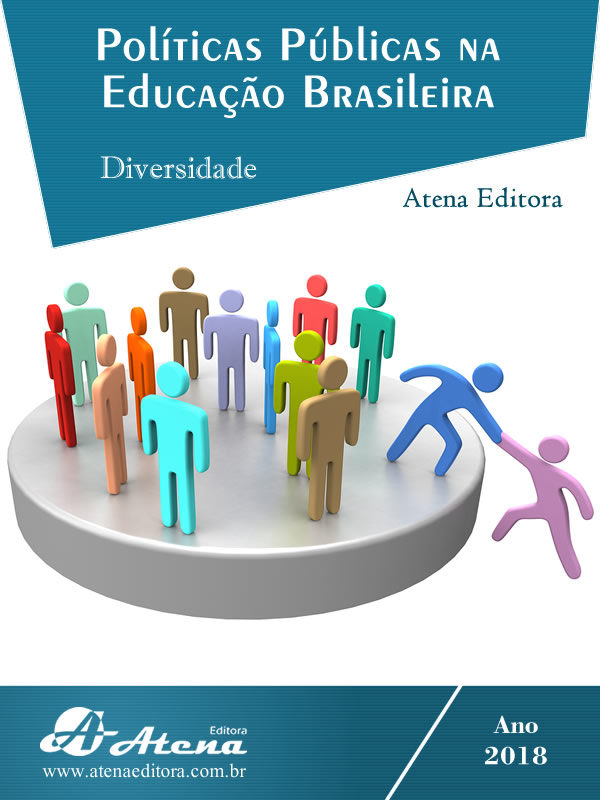
O/A DOCENTE DA ESCOLA FAMÍLIA AGRÍCOLA: CONSIDERAÇÕES SOBRE A FORMAÇÃO DO/A MONITOR/A EM ALTERNÂNCIA
A Educação do Campo emerge da luta da comunidade rural em busca de
uma educação do/no/para o campo. Pensando nisso, as Escolas Famílias Agrícolas
surgem, entre o final de 1960 e início de 1970, com a perspectiva de promover a
associação entre conhecimento popular e científico, formando jovens críticos e
entendedores de problemas locais e regionais. Essas escolas utilizam a Pedagogia
da Alternância como metodologia de ensino, na qual os estudantes alternam entre
casa e escola, promovendo troca de conhecimento. Este texto nasce na perspectiva
de entender o tipo de profissional docente formado para atuar nessas instituições,
já que estas demandam educadores/as com práticas que atinjam seus objetivos.
Trata-se de uma pesquisa qualitativa de cunho bibliográfico que se realizou por meio
de investigações em materiais digitais e impressos, artigos científicos, buscados no
Google acadêmico e livros. Visamos trazer um pouco da realidade das escolas do
campo, o currículo pensado para essas instituições e o/a profissional mais apto para
trabalhar nessas escolas. Entendemos que a formação inicial e continuada do corpo
docente das Escolas Famílias Agrícolas deve ser realizada por meio de um projeto
formativo atrelado à Pedagogia da Alternância, formando os chamados
monitores/as, que exercem um papel na sala de aula e fora dela, dentro e fora da
escola. Estes profissionais devem manter um contato constante com a realidade dos
jovens para poderem problematizá-la e buscar solucionar as dificuldades locais.
Devem ser pessoas solidárias, para formar cidadãos solidários, sensíveis à sua
realidade e conhecedores de seus direitos e deveres.
O/A DOCENTE DA ESCOLA FAMÍLIA AGRÍCOLA: CONSIDERAÇÕES SOBRE A FORMAÇÃO DO/A MONITOR/A EM ALTERNÂNCIA
-
DOI: Atena
-
Palavras-chave: Educação do Campo, Formação Docente, Pedagogia da Alternância.
-
Keywords: Country Education, Teacher Training, Pedagogy of Alternation.
-
Abstract:
Country Education emerges from the rural community's struggle for
education from / to / into the countryside. Thinking about this, Family Farm Schools
emerged between the late 1960s and the early 1970s, with the prospect of
promoting the association between popular and scientific knowledge, forming
critically people of local and regional problems. These schools have used Pedagogy
of Alternation as a teaching methodology, in which students alternate between home
and school, promoting knowledge exchange. This work is born from the perspective
of understanding the type of teacher that is formed for these educational institutions,
in which they demand monitors with practices that achieve their objectives. It is a
qualitative bibliographic research that was carried out by means of investigations in
digital and printed materials, scientific articles, having as sources of search Google
academic and books. We aim to bring a little of the reality of country schools, their
curriculum and the professional apt to work in these schools. We understand that
initial and continued training of teachers engaged to FamilyFarm Schools should be
carried out through a formative project linked to the Pedagogy of Alternation, forming
the so-called monitors, who play a role in classroom and outside of it, as well as inside
and outside of school. These professionals must maintain a constant contact with
young people´s reality in order to problematize it and then seek to solve the local
difficulties. They should be supportive people, sensitive to their reality and aware of
their rights and duties.
-
Número de páginas: 15
- Grasiela Lima de Oliveira
- Alessandra Alexandre Freixo
- Osdi Barbosa dos Santos Ribeiro


